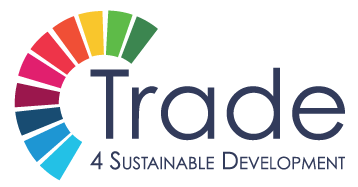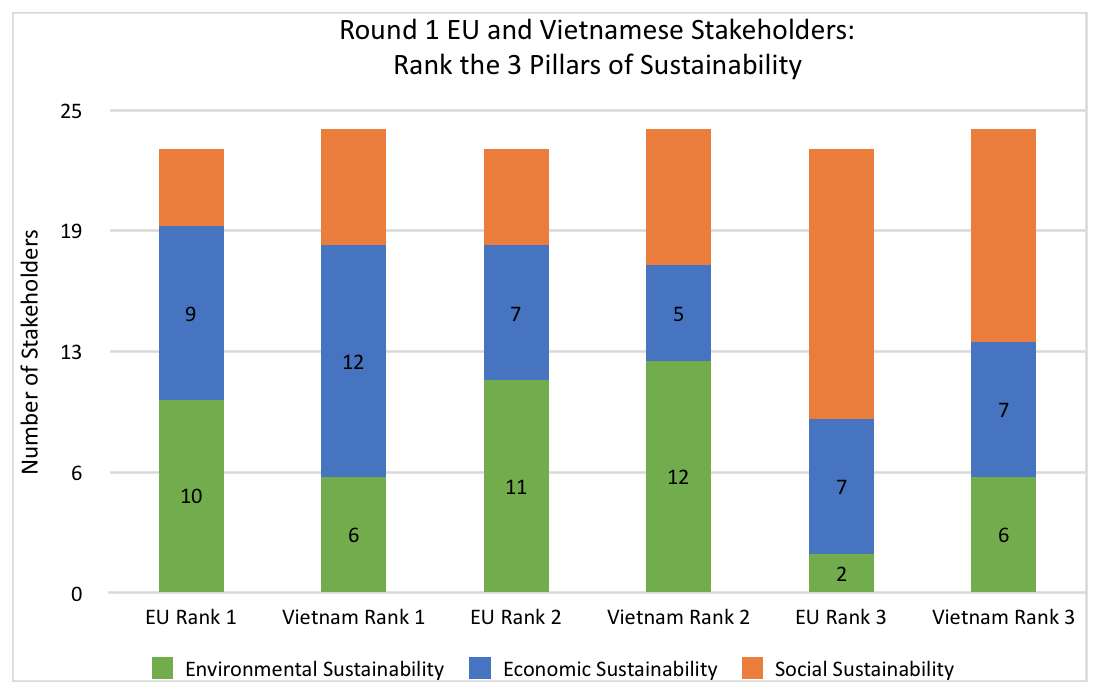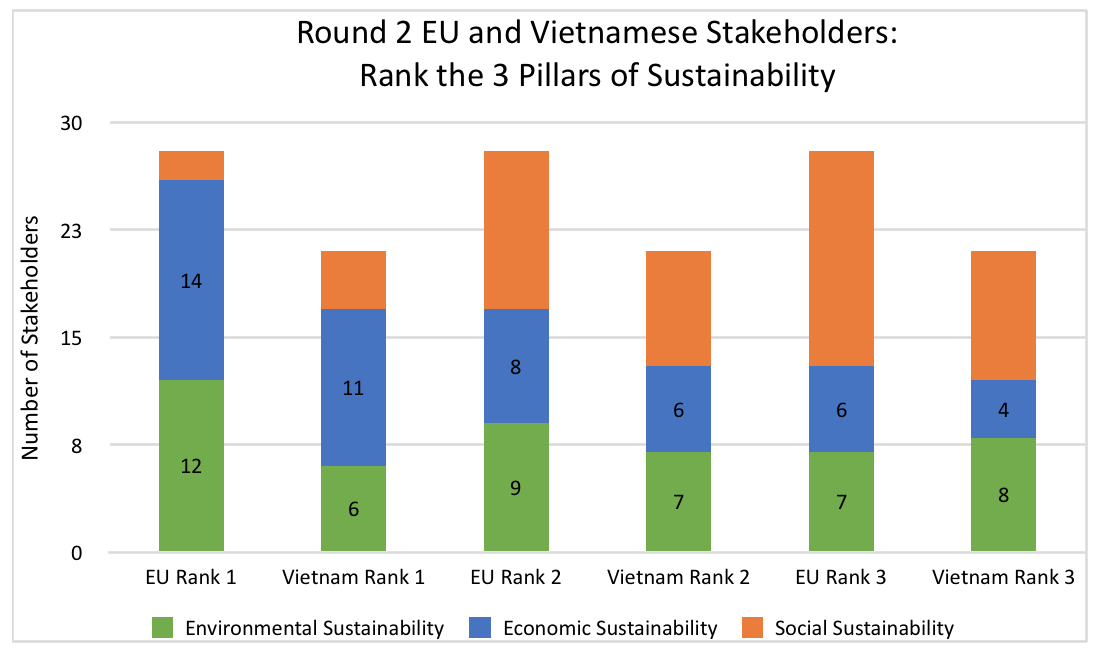A. Bailey1, M. Banse2, S. Davidova1, V. Hoang3, A.Kirtley1 A. Le3
1 University of Kent, UK
2 Johann Heinrich von Thünen-Institut, Germany
3 University of Economics Ho Chi Minh City, Vietnam
A TRADE4SD team carried out an online survey of project stakeholders designed to understand the relative importance experts place on differing aspects of sustainability and their prior expectations of interactions between international trade in agri-food and sustainability. In doing so, aspects of economic, social and environmental sustainability received focus in the light of the effects of: a) further trade liberalisation and b) the shock of Ukrainian war.
The survey was organised in three rounds. The first round focused on stakeholders’ priorities in respect of pillars of sustainability – economic, environmental, and social, the second one tried to reveal their opinions on a range of more detailed attributes of each of the three pillars, and the third round was designed to investigate whether their priorities and concerns had changed due to the shock of Ukrainian war, a shock which hit part way through the exercise. Additionally, comparison of the views and priorities of stakeholders working in EU countries and the opinions of stakeholders in a developing country were analysed. Vietnam, as one of the EU trade partners countries participating in TRADE4SD was used as a case study.
Round one revealed a difference in priorities across the three aggregate pillars of sustainability. The majority of EU respondents ranked the environmental sustainability as the most important, whilst the Vietnamese respondents put the emphasis on the economic pillar. Our survey also found, surprisingly, that both groups ranked social sustainability as the least valued pillar, as visualised in the chart below.
Responses about the effects of trade were more nuanced. Concerning the effect of further trade liberalisation both groups unanimously perceived that the effect on environment will be negative and greenhouse gas emissions will increase. On the positive side, the EU stakeholders claimed that trade would increase productivity, help better distribution of factors of production, and allow countries to exploit their comparative advantage. Some stakeholders, however, were more cautious; they raised concerns that trade may lead to price volatility and price distortions as well as result in threats to local food security for those in developing countries. The Vietnamese respondents believed that trade would increase wealth, income, and efficiency in the use of resources. Yet, some stakeholders claimed that trade would widen inequality between the North and South of Vietnam (a net consumption and a net production area respectively) via unfair trading or pricing of commodities.
The following chart shows a comparison of responses from the EU and the Vietnamese stakeholders in the second round of the survey.
As the chart illustrates, both the EU and Vietnamese stakeholders ranked economic sustainability as the most important pillar. Within the economic pillar, they listed as crucial attributes; agricultural profitability, per capita income, and maintenance of economic growth. Under the pillar of environmental sustainability, both groups perceived water access and water quality as essential aspects. However, EU respondents thought biodiversity was one of the most important attributes, whist Vietnamese stakeholders prioritised greenhouse gases and land use for agriculture. Both groups indicated that societal stability was the most important aspect under the pillar of social sustainability.
Concerning the impact of Ukraine war, half of the EU respondents claimed that SDG 16 Peace, Justice and Strong Institutions and SDG 2 Zero Hunger would be most affected by the war. Prices and food security were thought to be the most exposed to risks emanating from the war at a global level. A high proportion of Vietnamese respondents changed their pillar rankings in the face of the war resulting in the environment now being considered the least important pillar in place of the social pillar at the bottom of their priorities. Like the EU stakeholders, the Vietnamese respondents perceived SDG 16 Peace, Justice and Strong Institutions to be the most affected SDG by the war. Most stakeholders ranked the food security and prices as being at highest risk at a global level due to the war. Two third of stakeholders claimed that food consumers in developing and European countries would be most negatively impacted by the war.
TRADE4SD research on priorities and concerns about the interaction between trade and sustainability will continue with a study of public opinion on the issue in selected countries.




Leave a Reply